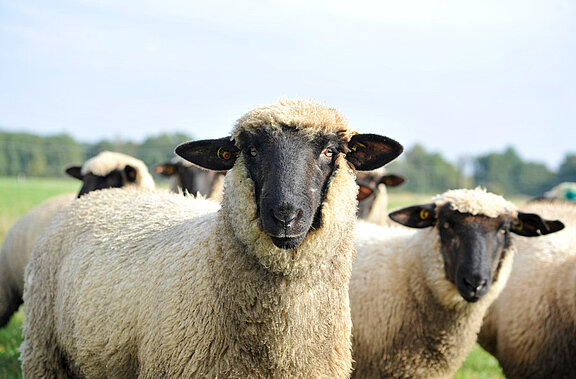The National Reference Laboratory for Bluetongue of the Friedrich-Loeffler-Institute confirms the first outbreak of bluetongue serotype 3 (BTV-3) in Germany. A sheep farm in the district of Kleve, North Rhine-Westphalia, is affected. Further outbreaks are expected, especially in North Rhine-Westphalia and Lower Saxony. In particular, sheep, goats and cattle with BTV-typical symptoms should be examined for possible infection. Affected regions will lose their "disease-free" status according to the Commission Implementing Regulation (EU) 2021/620, which may lead to trade restrictions for the affected regions.
The outbreak is not unexpected as BTV-3 was first detected in the Netherlands in early September in the provinces of Noord-Holland and Utrecht and has since spread rapidly. To date, more than 1000 outbreaks of BTV-3 have been detected, mostly on sheep farms. A first outbreak has also been reported in Belgium in a sheep farm. This is the first occurrence of bluetongue serotype 3 in this region. In Europe, it has only been detected in southern Italy. Other countries where BTV-3 has been detected include Tunisia, Israel and large parts of southern Africa.
The bluetongue virus is transmitted by midges (blood-sucking mosquitoes) and causes acute disease in ruminants such as sheep and cattle, with reluctance to eat, apathy, high fever, salivation, swelling of the head, tongue and lips, inflammation of the coronal border of the hooves with lameness and reddened mucous membranes. In severe cases, animals can die; in the Netherlands, losses of up to 25 percent of infected sheep are currently being recorded.
In addition to cattle, sheep and goats, wild ruminants and New World camelids (alpacas, llamas) are susceptible to infection with BTV.
The only effective protection against clinical signs and spread of the virus is vaccination. However, no vaccine against serotype 3 is currently available. Therefore, there are currently few options to protect susceptible animals from infection. Since BTV is transmitted by midges rather than from animal to animal, attempts can be made to protect animals from bites.


